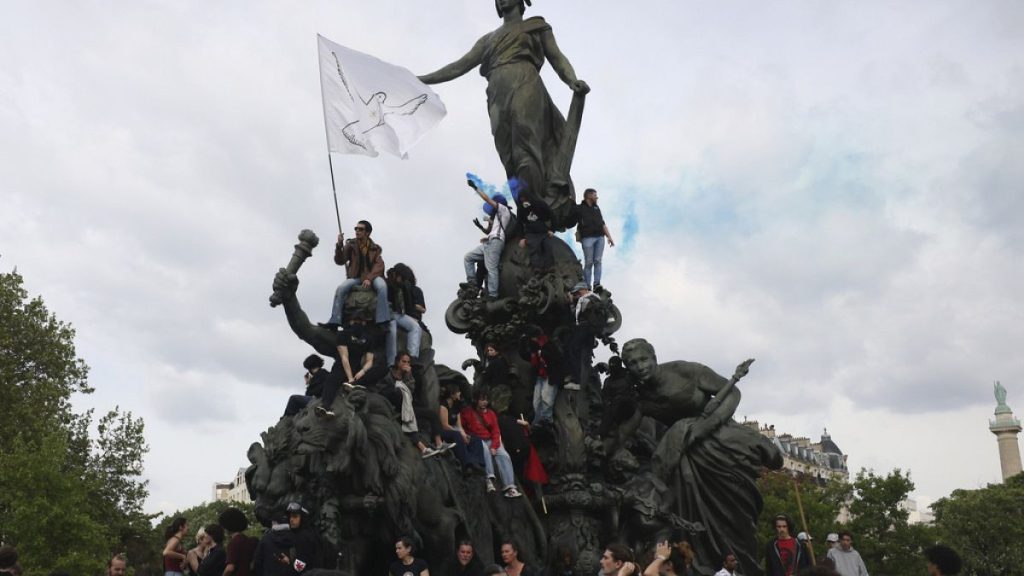Many left-wing candidates took advantage of the traditional May Day protest in Paris to present their campaigns ahead of the European elections. The event turned into a highly political one, with demands for higher salaries and equal pay being overshadowed by calls to protest against the rise of the far-right represented by Jordan Bardella of the Rassemblement National party (RN). Bardella, currently leading in the polls, announced his candidate list in southwestern France, drawing criticism from opposing parties for taking attention away from worker’s issues. The Communist candidate, Léon Deffontaines, focused his campaign on energy bills, while the Green Party leader, Marie Toussaint, highlighted the importance of fighting against anti-democratic parties.
The May Day protest in Paris saw tens of thousands of protestors marching through the streets against a backdrop of new demands, such as peace in Gaza and opposition to the upcoming Paris Olympic Games. With less than six weeks left before the European elections, the event became a platform for various left-wing candidates to present their campaigns. The head of the socialist party, Raphaël Glucksmann, was prevented from joining the march in Saint-Etienne, with protesters throwing paint and eggs at him. According to a poll by IPSOS, Macron’s centrist alliance Renaissance is lagging behind Bardella’s party by 15 points, indicating strong support for the far-right in the upcoming elections.
In southwestern France, Jordan Bardella gathered over 2,000 people to announce his party’s first 35 candidates for the European elections. This move was met with criticism from left-wing parties, who accused Bardella of diverting attention from worker’s issues. Bardella’s party, the Rassemblement National, has been leading in the polls, posing a significant threat to Macron’s centrist alliance. The main labour union CGT claimed that over 210,000 people participated in marches across France, highlighting the significance of the May Day protest as a platform for political statements and campaigns.
Léon Deffontaines, the Communist candidate for the EU elections, emphasized the need to take France out of the European electricity market to reduce energy bills. This proposal aligns with the concerns of many protestors and reflects the broader focus on economic issues in the political landscape. The traditional demands for higher salaries and equal pay were echoed throughout the protests, emphasizing the importance of labour rights and worker’s rights in the face of growing support for far-right parties. The presence of multiple left-wing contenders at the May Day protest in Paris underscored the significance of the event as a political platform in the lead-up to the European elections.
The May Day protest in Paris showcased the diversity of political voices in France, with left-wing candidates using the event to highlight their campaigns and push back against the rise of the far-right. Bardella’s announcement of his candidate list in southwestern France drew criticism from opposing parties, who accused him of taking attention away from important worker’s issues. Despite the focus on political campaigns, the traditional demands for higher salaries and equal pay were still prominent in the protests, reflecting the ongoing struggle for labour rights in France. The strong turnout at the protests indicated the significance of the May Day protest as a platform for political statements and campaigns ahead of the European elections.













